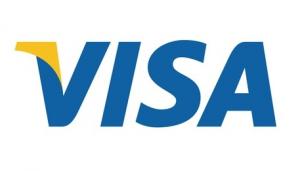Wentker Departs Visa; Bains Leaves GSM Association

Dave Wentker, considered the No. 2 man in Visa Inc.’s mobile-payment unit and a former vice chairman of the NFC Forum, has left the payment network after more than 15 years, NFC Times has learned.
Wentker, who took his current position as head of mobile strategy and solutions at Visa in 2010, apparently left to pursue other opportunities. Visa confirmed the move to NFC Times but did not respond to a question of who would replace Wentker, who served under Bill Gajda, Visa’s head of mobile.
Meanwhile, in another NFC industry move, Nav Bains, senior director of mobile money at the GSM Association and point man for the mobile operator trade group’s NFC program, has left the organization. The GSMA confirmed the move to NFC Times and said Bains had taken a job at U.S.-based contactless reader and NFC vendor Vivotech. Vivotech didn't immediately confirm it had hired Bains.
Wentker was involved with the work leading up to Visa forming a partnership with UK-based mobile-banking and payments vendor Monitise, of which Visa Inc. and Visa Europe now together own more than a 20% stake.
 Wentker had headed Visa's mobile-contactless payments initiatives since early 2009 and had worked with the technology for several years.
Wentker had headed Visa's mobile-contactless payments initiatives since early 2009 and had worked with the technology for several years.
He was passed over for the job of head of mobile in early 2010, when Visa went outside the organization to hire Gajda, who was former chief commercial officer of the GSM Assocation.
Wentker's work in mobile contactless would have had him involved in a number of NFC trials using Visa payWave contactless technology over the years. And Wentker was believed to have spearheaded the certification of contactless microSD cards and devices to run payWave, though there have yet to be rollouts with this technology.
The low-key Wentker did not have a high public profile in the industry and some observers were hard-pressed to name his major initiatives or examples of bold, innovative thinking. But he did much behind-the-scenes work helping to prepare NFC and mobile-contactless payment technology for the market and has deep industry knowledge, noted one source.
Wentker represented Visa on the NFC Forum board and served as its vice chairman for about 18 months before stepping down in June of 2011. He first joined Visa in 1996, and apart from a short stint with a startup in 2000, had worked at the payment network ever since.
Meanwhile, the GSM Association has confirmed that Bains has left the UK-based trade group, and that it was recruiting a new business lead for NFC.
The association last August already brought in an NFC program director, James Heaphy, formerly an innovation program manager for UK-based Vodafone Group. He has been working with operators and industry vendors.
Bains had reportedly served as senior director of mobile money since 2006, but is mainly known for his work as business lead for NFC. That included heading up the GSMA’s Pay-Buy Mobile initiative, launched in early 2007 to promote use of SIM cards as the de facto secure element for NFC payment. The initiative helped coordinate several SIM-based NFC payment trials for operators.
 Bains was also instrumental in helping to lay the technical foundation for SIM-based NFC payments, focusing on single-wire protocol-enabled SIM cards and secure provisioning of the cards over the air by a trusted service management infrastructure. He also worked with operators and other ecosystem players on the commercial side.
Bains was also instrumental in helping to lay the technical foundation for SIM-based NFC payments, focusing on single-wire protocol-enabled SIM cards and secure provisioning of the cards over the air by a trusted service management infrastructure. He also worked with operators and other ecosystem players on the commercial side.
As NFC technology gears up and heads toward long-anticipated rollouts, the GSMA has been recruiting more NFC personnel, including bringing in Heaphy.
It's a critical time for the trade group and its members when it comes to NFC. They are continuing to fight for control of NFC handsets and to push the SIM-centric model of NFC. The telcos face continued threats from both new and established ecosystem players that could use other secure elements in the phones, especially embedded chips.
These include Internet players, such as Google, which has already launched its Google Wallet on embedded chips, as well as device maker Samsung. And there is an ever-present threat that Apple could one day decide to launch NFC services.












